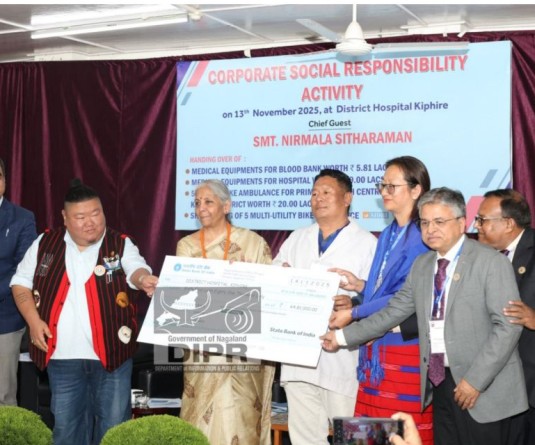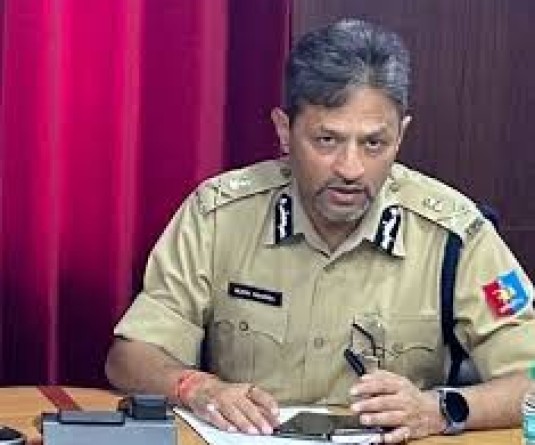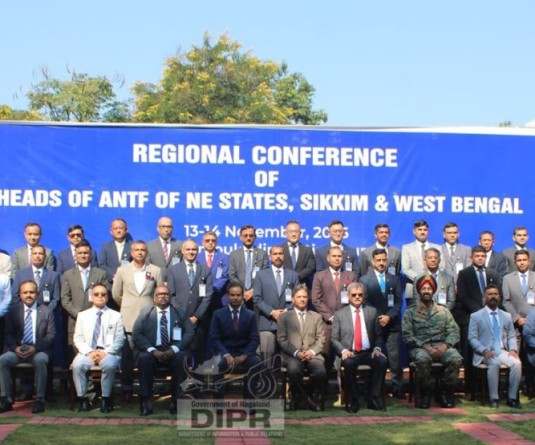
Morung Express News
Kohima | March 12
A PhD international seminar on the theme ‘Building Big? Global Scales of Monumentality –An Ethno-archaeological Perspective’ is currently being held in Kohima at Hotel Japfü.
Starting from today, March 12 till March 24, the Seminar will also include an International workshop on the topic –Monumentality “Hierarchy and Balance: The role of monumentality in European and North East Indian Landscapes.” This international program is jointly organised by University of Oslo, Norway (The Nordic Graduate School in Archaeology), Nagaland University (Department of History and Archaeology), and Kiel University Germany (Graduate School ‘Human Development in Landscapes’ Kiel Collaborative Research Center 1266 ‘Scales of Transformation’).
The inaugural of the program was held on March 12 with Prof. Pardeshi Lal, Vice-chancellor, Nagaland University, as the chief guest. During the inaugural, Dr. Tiatoshi Jamir, Program Organizer, Department of History and Archaeology, Nagaland University, in his welcome address spoke on the important role played by archaeology in shaping the understanding of the past, since its emergence as a distinct academic discipline in the modern era.
“And for a region like the Northeast and Nagaland, with local scholars that still heavily rely on colonial constructions of their regional history, it is essentially clear that one can no longer ignore the importance of archaeology that can provide ‘alternative histories’ and a deeper sense of understanding of what the history of North East India was much before the British,” viewed Dr. Tiatoshi who express hope that the workshop will help explore and offer those alternative insights and perspectives both at a theoretical as well as at a methodological level.
“We are dealing not only with the past but we are explaining the past with scientific methods,” said Johannes Müller, Kiel University Müller in his keynote address during the inaugural. Observing the development of archaeology in the last 20 years, Müller viewed that archaeology is developing into inter-disciplinary subjects such as archaeo-botany.
“In this sense, everywhere in the world archaeology is becoming a discipline for modern science but also for the political discussion of science because these are crossroads. Archaeology is like a bridge between these disciplines for every university,” stated Müller who also noted that the program is a new initiative for European, Scandinavians and Indian scholars.
Providing a brief theoretical background on Monumentality, Maria Wunderlich from Kiel University posited that monumentality is an important topic for archaeologists, and for various periods and eras. While monuments have a wide range of interpretations such as religious and spiritual aspects, monuments are also signs of emerging social inequality. Wunderlich also pointed out the dangers of these interpretations which are also biased by ‘our own social backgrounds and economic circumstances play into these interpretations.’
The keynote speakers for the program are Johannes Miiller, Kiel university, Christian Jeunesse from University of Strasbourg, Lue Laporte from the University of Rennes, Marco Mitri from UCC Shillong and Tilok Thakuria from NEHU, Tura, Meghalaya.
PhD Scholars from Europe, Scandinavian countries, Delhi University, NEHU and Nagaland University will be participating.
Some of the papers and discussions to be presented in the during the 13 days seminar and workshop are:
• Monumentality as a Past and Recent Phenomenon- Johannes Müller/Maria Wunderlich (Kiel University)
• Living megalithic culture of Khasi Jaintia Hills- Marco Mitri, UCC Shillong
• Funeral Monumentality and Prestige in Indonesia- Christian Jeunesse, University of Strasbourg
• Monumentality in the early Greek Iron Age-or the so called ‘Heroon’ at Lefkandi – Frederik Solemsli, University of Gothenburg (Opponent :Phillip Jerand)
• Legends of Mandalgre: Memories behind Monoliths – Gangotri Bhuyan Bhuyan, North- Eastern Hills University (Opponent: Malou Anna Backlund Blank)






